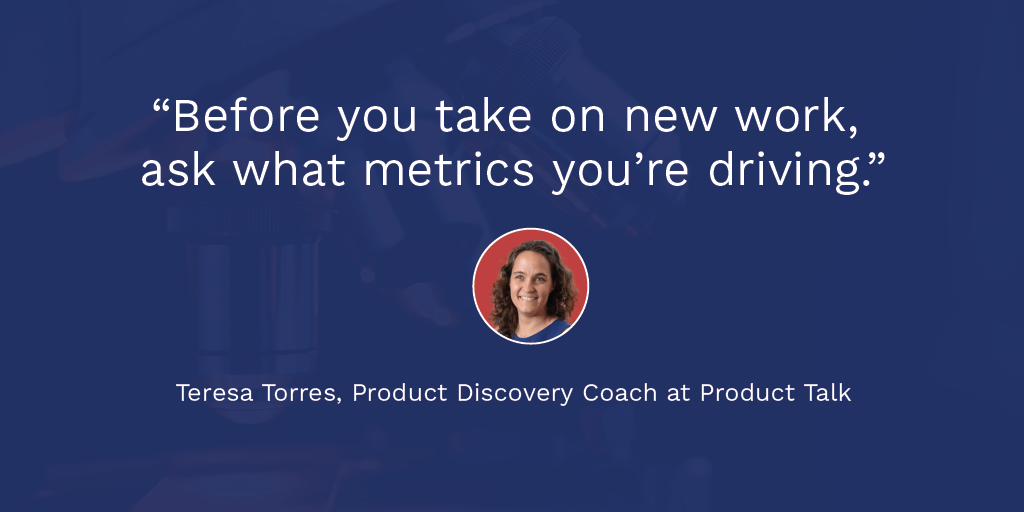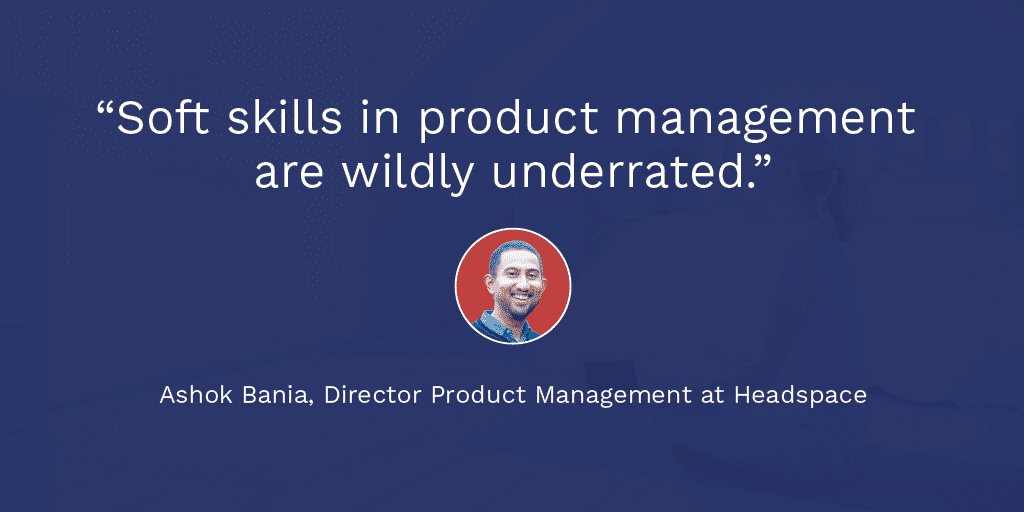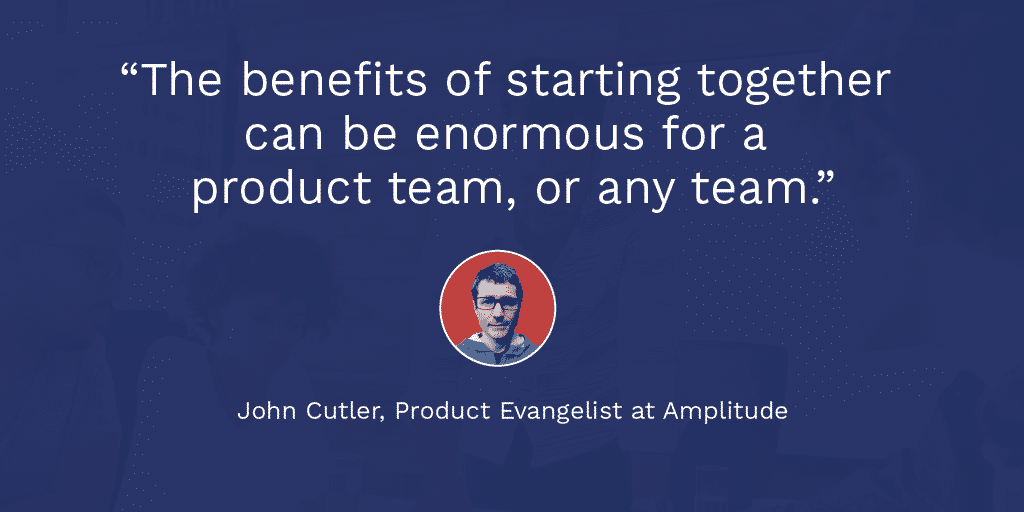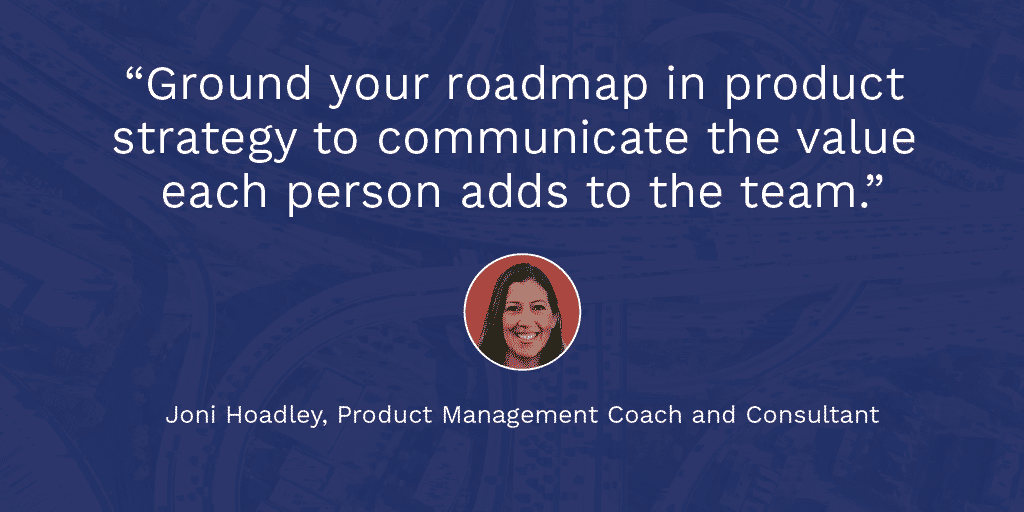The beginning of the new year marks an exciting time for many product organizations. New goals, new roadmaps, new initiatives. And as for just about everyone, new opportunities to start fresh.
Whether or not you’re one for making resolutions, most of us can agree that setting the tone is an important part of Q1. And what better way to set the tone than to model your ways after thought leaders in your field?
Product managers today should feel grateful for the legion of product leaders willing to share their thoughts and ideas. If you have a product question or problem, chances are someone notable has written about it.
With so much great content out there, we did our best to round up some of our favorite quotes from product leaders to help you kick off 2019. Each quote touches on a unique product management topic, and all are delivered by product leaders who are helping to drive our field forward.
1. Allow metrics to guide your priorities.
Unplanned work is inevitable, even for the product manager who has everything in order. Accepting this reality is step one. Defining metrics is step two. Prioritizing effectively is step three.
As Teresa Torres points out, what better way to prioritize work than to reference the metrics that matter most? If a new initiative appears out of nowhere, screen it. Will it help move the needle on your KPIs? If so, consider adding it to your to-do list. If not, add it to your backlog and revisit at a later time.

We’ve written extensively about prioritization frameworks in the past. For a customizable framework that allows you to measure whether or not initiatives will serve to improve your key metrics, we suggest a weighted scoring model.
2. Don’t just know about soft skills, develop them.
You might’ve heard about the importance of soft skills in product management. It’s become a popular notion. But as Ashok Bania points out, today’s product managers can still buy low on moving from theory to action.
In a recent interview with Bania, he explained how the product management role is defined by two axes: working with people and working with the product. As one would expect, most product managers are quick to hit the ground running with the product. Usually there is no shortage of work to be done.
But as you climb the rungs of the product management ladder, working with people becomes more important. Soft skills like communication, persuasion, and negotiation will ultimately determine whether or not your ideas see the light of day.
3. Enjoy the benefits of a “start-together” culture.
John Cutler believes successful products are built by teams that take on challenges together, from start to finish. This way, everyone involved goes in with similar expectations and understanding.
Take a moment to reflect on your own organization. “Starting together” isn’t just a best practice; it’s a culture. Is your organization doing enough to foster a “together culture”? Status meetings, individual tasks, and small brainstorming sessions might be necessary in moderation. But too much of these things can break down a together culture.
Successfully achieving a together culture brings out the best in your team. Those involved will feel invested, fulfilled, and ready for the next challenge.
4. Let your roadmap do the explaining.
Product roadmaps serve a handful of needs, from communicating goals to visualizing strategic themes. And as Joni Hoadley notes, they also help contextualize the importance of your team members’ individual responsibilities.
To elaborate on her quote, Hoadley advocates for roadmaps organized by strategic themes. These themes should be product-related. For example, “Make the purchasing process faster for customers.” This example might be part of a larger company value to “always put user experience first.”
Within each theme, team members drive a handful of initiatives. So with no questions asked, a team member can easily reference the roadmap and understand how their own work is pushing the company (and its core values) forward.
5. External distractions are rarely urgent.
Between listening to customers, team members, and executives, today’s product manager simply can’t afford to take on more distractions. And we’re not talking about unplanned work here. This goes for iPhone notifications, Slack alerts, and social media visits alike. Before surrendering your focus, ask whether or not the distraction will serve you positively in some way.
It’s a sobering realization to consider how rarely an Instagram visit can be considered useful. Or how seldom a text needs an immediate reply. Chances are, whatever you were working on before you unlocked your phone was of higher importance.
Nir Eyal is known for coining the term “indistractable.” This quote from his MTPCON keynote makes the list because “indistractibility” is perhaps the most important product management trait that few of us have yet to master.
6. Strategize self-improvement.
In an awesome article on product management self-improvement, Ellen Chisa writes about the following 4 things to consider when deciding what to learn next:
- Where you struggle now.
- Where your company (or just you) is going next.
- Reinforcing your strengths.
- Reducing your weaknesses.
As we’ve mentioned before, no two product management career paths are the same. You may be a specialist in one field, but you’re probably a generalist in a handful of others. Which means there is always something you could get better at.
But with limited time and opportunity costs on your plate, choosing what to learn next actually involves some strategy. Check out Chisa’s post for more guidance on how to navigate these 4 options.
7. Embrace an agile approach to product management.
One of the core values of the Agile Manifesto is “responding to change” instead of “following a plan.” Many of today’s product managers have discovered that this ideology produces efficient, quality results when building products.
Amelie Watt explains how she leans on high-level goals instead of rigid plans when managing products. This way, room is made for unplanned work that arises out of customer feedback or shifting priorities. Planning should be reserved for sprints, and even then, customer feedback loops should help guide decisions.
Just this week, we published our latest book on agile product management. Watt probably could’ve written it herself, but if you’re new to this concept and would like to learn more, give it a read!
What are some of your own favorite product management quotes? Let us know in the comments!










